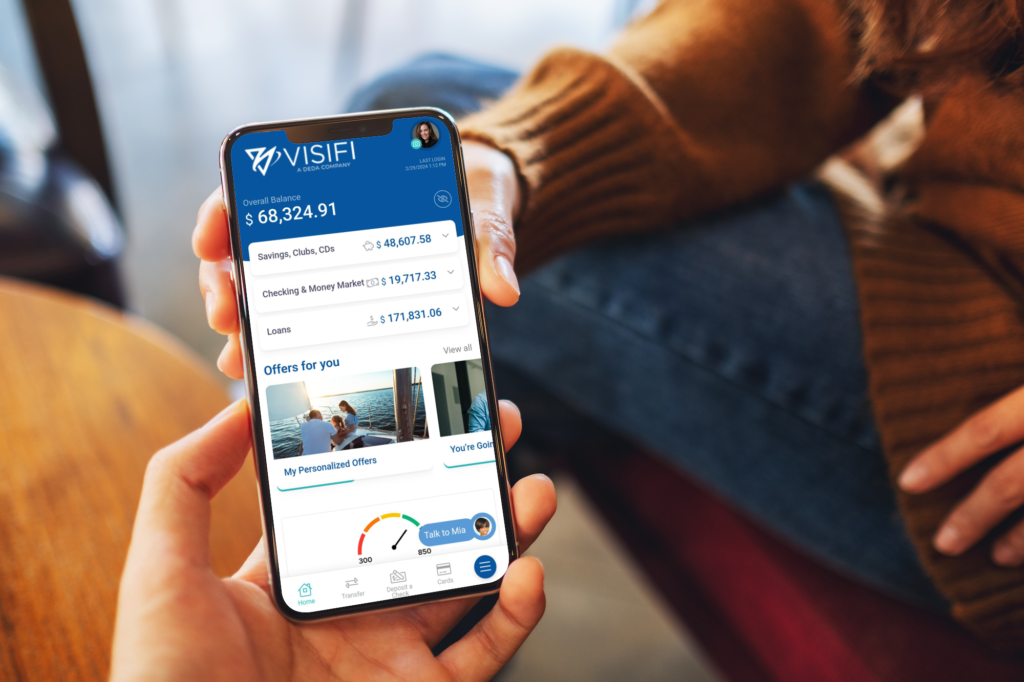No Credit Union is Too Small: The Journey Towards Digital Access and Community Cooperation
The role of credit unions and their impact extends far beyond balance sheets and transactions. They have the power to transform lives, yet they navigate twists, turns, and unexpected detours along the way to their mission to uplift communities and empower individuals.
Creating meaningful change in communities begins with access, and access to financial services starts with digital. Regardless of size, credit unions can foster cooperation and address the costs of poverty, purpose, mission, and empowerment. While digital transformation provides the vehicle for community engagement, the path to success is rarely linear.

The Key to Access and Growth- Access Matters
Access is more than just a buzzword—it’s a fundamental driver of success. In an interconnected world, digital access is the gateway to financial empowerment. Whether it’s a member checking their account balance from a smartphone or applying for a loan online, credit unions must prioritize accessibility. That includes having a holistic digital strategy that ensures that members can access services seamlessly, regardless of their location or background.
But access isn’t just about technology; it’s about community cooperation. Credit unions, regardless of their size, can collaborate to address common challenges. By sharing resources, best practices, and innovative solutions, they create a cooperative ecosystem, fostering community connections that matter.
Community Cooperation: The Expensive Reality - Empowering the Underserved
Being poor is costly—so expensive that people can’t afford it either financially or emotionally. Lack of access to affordable financial services, predatory lending, and limited opportunities perpetuate poverty cycles. The Federal Reserve’s Consumer Finance Survey shows just under 40% of households that use credit unions as their primary financial institution have liquid financial assets of less than two weeks of income, more than banks (at around 35%). Financial exclusion exacerbates poverty. People with poor access to credit often pay exorbitant interest rates and high fees for basic financial services.
Credit unions, armed with digital financial tools, can help break these cycles. By offering fair rates, financial education, and community support, credit unions can empower their members to escape the trap of poverty.

Cooperatives within communities have a unique advantage though—they collaborate to solve challenges collectively. As community-focused institutions, they can leverage this cooperative spirit and shared ethos, for example, the NCUA’s Office of Credit Union Resources and Expansion offers training, technical assistance, and grants to low-income-designated MDIs. The Small Credit Union and Minority Depository Institution Support Program helps with challenges identified in examination reports. Inclusiv supports the growth of cooperatives, focusing on underserved markets. By ensuring that cooperatives reach those who need them most, Inclusiv is leveling the playing field for new business start-ups, gig workers, converting existing businesses into cooperatives, and preventing demutualization.
The Journey Toward Digital Excellence
It is crucial for credit unions operating in low-income and disadvantaged communities to embrace digital channels. A cohesive member journey approach across online banking, mobile apps, and other touchpoints, such as implementing chatbots for member inquiries or offering personalized financial advice through AI-driven tools, can enhance member experiences and provide greater access to financial services.

Micro Loans:
Credit unions can offer alternative funding options and financial tools to budding entrepreneurs who might otherwise face high interest rates from predatory lenders. These fair rates become a catalyst for development in communities empowering small local businesses to thrive, creating jobs, and generating income.

Shared Branch Networks:
Credit unions collaborating to create shared branch networks allow members to access services at any participating credit union. This cooperative approach expands the reach and convenience of services, which allows members to conduct transactions (such as deposits, withdrawals, and account inquiries) at branches other than their home credit union. This cooperative arrangement benefits members by providing greater accessibility and flexibility and helps meet members where they are.

Financial Literacy Workshops:
When credit unions partner with local schools and businesses to offer financial literacy and education focused on students and youth through an engaging, interactive curriculum, they help cultivate the next generation’s financial awareness. By combining resources and knowledge, they are equipping the younger generation with essential money management skills. Mobile banking with integrated budgeting tools, calculators, credit, and investment management tips can further support positive financial decision-making.

VisiFI’s Role in Community Cooperation
From onboarding to loan applications, a well-executed digital strategy enhances member satisfaction and loyalty. We are proud to partner with Inclusiv and other networks supporting cooperatives to deliver solutions that help credit unions embrace digital strategies and create a lasting community impact. No institution is too small to succeed, especially when backed by the right technology and shared mission. VisiFI understands that credit unions exist to serve their communities. Whether it is supporting local businesses, promoting financial literacy, or fostering economic growth, together, we can make a difference.
To learn more about our open, modular, and flexible solutions visit us at www.visifi.com.
Share this post:






